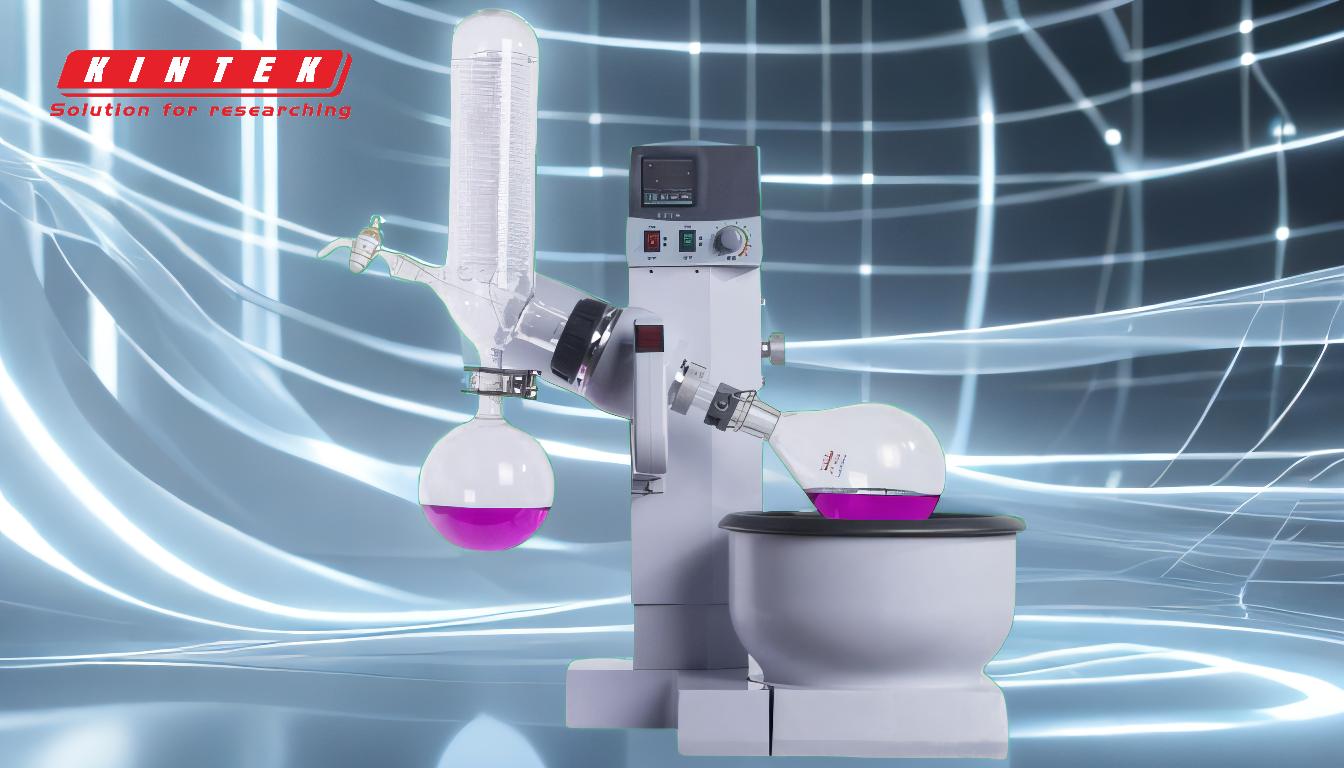Rotary evaporators are highly efficient laboratory instruments designed for solvent removal, concentration, and purification processes. Their advantages stem from their ability to operate under reduced pressure and controlled temperatures, making them ideal for handling heat-sensitive materials. Key benefits include faster solvent evaporation rates, energy efficiency, and the ability to process large volumes of solvents with minimal sample loss. Rotary evaporators also offer precise control over evaporation parameters, such as vacuum depth, temperature, and rotation speed, ensuring consistent and reproducible results. Additionally, their design features, such as continuous feeding systems and automatic lifting mechanisms, enhance productivity and safety in laboratory workflows.
Key Points Explained:

-
Efficient Solvent Removal at Low Temperatures:
- Rotary evaporators operate under reduced pressure, which lowers the boiling point of solvents. This allows for gentle evaporation at lower temperatures, protecting heat-sensitive compounds from thermal degradation.
- The formation of a thin liquid film on the inner surface of the flask increases the surface area for evaporation, significantly speeding up the process compared to traditional methods.
-
Energy Efficiency and Cost Savings:
- By utilizing vacuum technology, rotary evaporators require less heat to achieve solvent removal, making them more energy-efficient than boiling methods.
- The ability to recover and recycle solvents reduces waste and lowers operational costs, making them environmentally and economically beneficial.
-
High Evaporation Rates and Productivity:
- The continuous feeding system and thin-film evaporation mechanism enable rapid processing of large volumes of solvents, saving time and increasing laboratory throughput.
- Rotary evaporators are particularly effective for concentrating trace components and handling reflux operations, further enhancing their utility in diverse applications.
-
Precision and Control:
- Users can adjust parameters such as vacuum depth, temperature, and rotation speed to optimize the evaporation process for specific materials and solvents.
- This level of control ensures consistent results and minimizes the risk of sample loss or contamination.
-
Safety Features:
- Automatic lifting mechanisms raise the flask above the heating pot when the power is turned off, preventing overheating and potential hazards.
- The design minimizes bumping (sudden bursts of boiling), reducing the risk of sample loss and ensuring a safer working environment.
-
Versatility in Applications:
- Rotary evaporators are suitable for a wide range of materials, including organic, inorganic, and polymeric compounds.
- They are commonly used in laboratories for solvent recovery, concentration, and reaction processes requiring stirring, making them indispensable tools in research and industrial settings.
-
Simplicity and Ease of Use:
- Rotary evaporators are user-friendly and widely available in laboratories, requiring minimal training to operate effectively.
- Their straightforward design and reliable performance make them a preferred choice for routine and specialized laboratory tasks.
In summary, rotary evaporators offer a combination of efficiency, precision, safety, and versatility, making them essential instruments for solvent handling and sample preparation in modern laboratories. Their ability to process materials quickly and gently while conserving energy and resources underscores their value in both research and industrial applications.
Summary Table:
| Advantage | Description |
|---|---|
| Efficient Solvent Removal | Operates under reduced pressure for gentle evaporation at low temperatures. |
| Energy Efficiency | Uses less heat, reducing energy consumption and operational costs. |
| High Evaporation Rates | Thin-film evaporation and continuous feeding systems increase productivity. |
| Precision and Control | Adjustable vacuum, temperature, and rotation speed for consistent results. |
| Safety Features | Automatic lifting mechanisms minimize overheating and bumping risks. |
| Versatility | Suitable for organic, inorganic, and polymeric compounds in diverse applications. |
| Ease of Use | User-friendly design with minimal training required. |
Ready to enhance your lab's efficiency? Contact us today to learn more about rotary evaporators!










